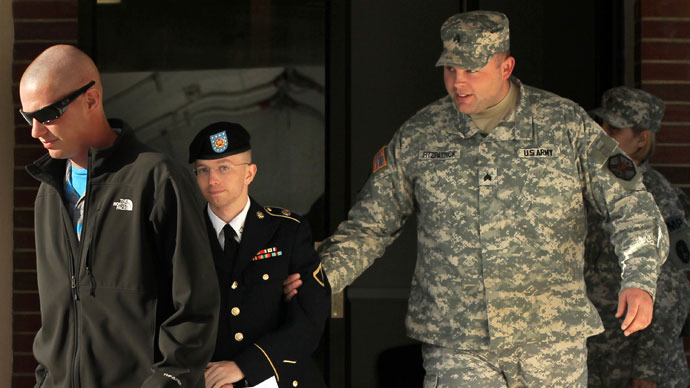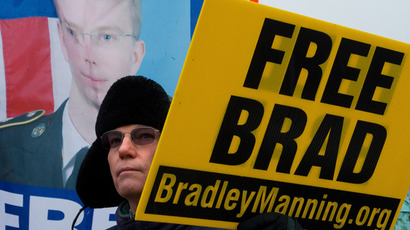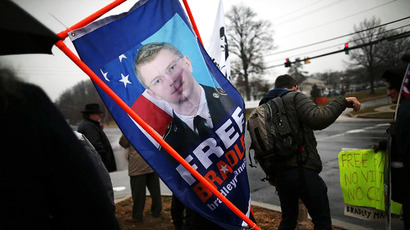Military officer tells journalists to 'police' each other at Manning trial

American military officials at the Bradley Manning trial have responded to a snippet of leaked audio by threatening reporters covering the proceedings and encouraging them to inform a court representative if a media member breaks Army regulations.
The Freedom of the Press Foundation (FPF) scored a major victory last month for journalists frustrated by the government-mandated secrecy around the trial of alleged WikiLeaks source Bradley Manning by posting audio of the defendant reading a statement he wrote while he pleading guilty to leaking information to the whistleblower organization. The statement's publication was accompanied by a message condemning “overreaching government secrecy.”
“While reporters are allowed in the courtroom, no audio or visual recordings are permitted by the judge, no transcripts of the proceedings or any motions by the prosecution have been released, and lengthy court orders read on the stand by the judge have not been published for public review,” the FPF note read.
Apparently as retaliation for the unauthorized leak, a court officer at Maryland's Fort Meade, where the trial is underway, warned media to “police yourselves,” before adding the ominous, “If there is another violation, everyone feels the pain, not just certain individuals,” according to journalist Kevin Gosztola.
“This media operation center is a privilege, not a requirement,” the officer said while implying that the “privilege” could be revoked along with access to computers.
“Everybody has said they are journalists to be credentialed for this proceeding. That means you abide by the journalist ethics rules,” she said, accompanying it with “if you see somebody doing a violation, police the rules.”
Manning, 25, is facing 20 years in prison on charges that he violated the Espionage Act by sending military data to WikiLeaks. His case has garnered little national media attention despite reports that Manning was being mistreated and in solitary confinement after his arrest.
Questions have also been raised about the language of the “aiding the enemy” charge Manning faces. Under the current definition, media outlets that published information he leaked, such as The New York Times, could theoretically be charged with the same violation.
Prosecutors will have to prove beyond a reasonable doubt that the Army Private had “reason to believe” the information he leaked would harm the US. His defense team has asserted that Manning only leaked information he thought would be harmless.
The court officer who pressured the reporters did not offer any evidence that one of the media members was the source of the court tape recording – there were between 20 and 30 people on hand when Manning delivered his statement – but did say they should “protect the sanctity of the proceedings.”
“In other words, become a snitch or informer and help the military do its job of keeping the proceedings secure,” wrote Gosztola, who has attended many of the court martial hearings.
“No Mussolini School of Journalism exists, so one can confidently say that there is no journalism school that teaches journalists to police fellow individuals in their profession, including others they may work alongside in a press pool."
“The fact that she used the word ‘sanctity,’" he added, "shows that these officers are indoctrinated with security culture to an extent that they follow it is as if it were religion.”















